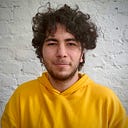MLH Fellowship Summer 2021 Experience
I was fortunate enough to be selected as an MLH Fellow for the summer batch of 2021. Now that I have finished my journey, I will tell you how the experience was for the past 12 weeks.
What is MLH Fellowship
The MLH Fellowship is a 12 week internship alternative for aspiring software engineers. Instead of interning at a single company, on the Open Source Track you’ll contribute to the type of Open Source projects that every company depends on.
Basically, you will spend your 12 weeks working and contributing to open source with the help of mentors.
How to be an MLH Fellow
It is very straightforward to be an MLH Fellow.
You will complete a very long form. If you pass, you have to complete two interviews. The former interview is about your speaking and communication skills, and the latter is about your technical skills.
You must show that you want to contribute to open-source projects and have the necessary technical skills for doing that.
I had an open-source project while I was applying to MLH. You will talk about your project in the technical interview, so choose not a simple project. The interviews went smoothly, and I was an MLH Fellow!
The pods
We were divided into several pods that consisted of one pod leader and 9–12 pod members. Our group had people from the US, Canada, Turkey (me!), India, and Africa.
The first week
The first week of the MLH is a hackathon to be familiar with your pod and open-source. You are asked to build a project with your newly met pod members in a group of 3–4. We were lucky enough to win the first week’s hackathon. Each of our group members got an Amazon Echo Dot. My girlfriend bought me a smart bulb, and I can close the lights even when in bed!
Standups
We were required to meet every weekday for the entire program. It got frustrated at the end, but it was important as you had a chance to see what other pod members were doing in their projects. In each standup, you talk about what you accomplished in the past 24 hours and what you plan to complete in the next 24 hours.
LMS Modules
Every week, we had LMS modules to complete. At first, modules were more focused on how to use GitHub and collaboration. In the latter weeks, you would write what you had done for the week and your plan for the next.
Show & Tell
Each pod member has to do a Show & Tell, in which the pod member must present a topic they choose for 15–30 min. My topic was about the library styled-components. Other example topics were: Functional programming, Algorithms, Crypto.
Games
Sometimes, we play games after the standups. We played games such as Spyfall, Werewolf, or Scribble. Playing Scribble was hard for me as I do not have an extensive vocabulary. However, I had a fun time playing these, and they created a bond within the pod.
1-on-1 with Pod Leader
You are required to meet with your pod leader on a biweekly basis. Our pod leader was a super cool guy and helped me immensely when I needed help. You decide what you want to talk about in these meetings. You can talk about MLH, your project, or general career advice.
Open Source Project: Stylex
I was assigned to work on the project Stylex, a CSS-in-JS library used internally in Facebook. The project was still closed-source when I worked on it as they were not ready to make it open-source. I met weekly with the Facebook engineer who was responsible for the project and discussed my problems and what I could do in the next week.
I have worked on writing a Next.js plugin, adding Typescript support, and making eslint smarter. As the project was a low-level library, I had to learn how the Babel worked under the hood and had a chance to see how hard it was to write a CSS library.
CTF
At the end of our fellowship, we played the game called capture-the-flag. In this game, you and your teammates try to solve cyber security problems. I was not good at it; however, one of our teammates killed it and carried us to the 3. spot.
Should you apply?
If you can spend the time required for the MLH Fellowship program, you should go for it. It is a great opportunity for those who want to be an open-source contributor but are scared to put their foot into the water.
